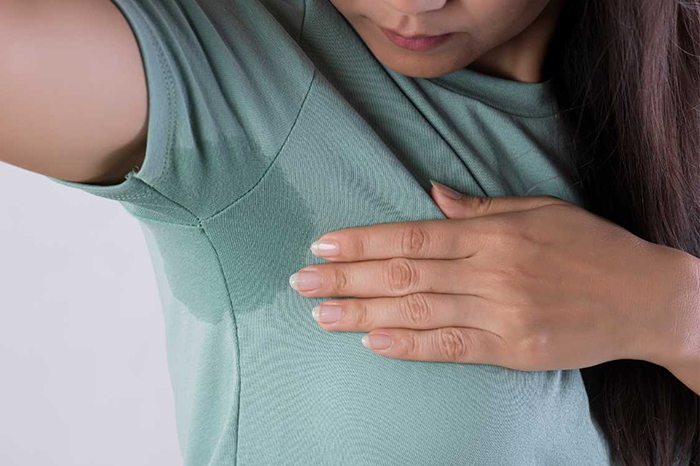Sweating or sweating is a common property of the body designed for thermoregulation – thus the body is protected from overheating. However, some people suffer from excessive sweating, which complicates their lives, and seek solutions in surgical interventions by dermatologists.
The skin covering the human body performs many functions, including being involved in maintaining body temperature. To effectively regulate the temperature, the skin is equipped with sweat glands that secrete sweat. This is an aqueous liquid that contains, in addition to water, mainly salt, that is, sodium chloride, and in small quantities also other substances that can be excreted from the body through sweat (for example, urea, lactic acid, a small amount of sugars.).
Small sweat glands are located all over the body, most of them on the palms and soles. Large sweat glands, which people can easily see for themselves, are mainly located in the armpits, as well as around the rectum and chest. More or less fluid is released from the sweat glands to the surface of the skin. It is formed in small quantities even when a person is at rest and at normal temperature, but then the evaporation of sweat is not noticeable. However, in the heat, under heavy load, with fever or stress, when the body becomes very hot, the sweat glands begin to work more intensively.
The smell of attraction
The secreted sweat contains organic components that decompose on the body and can cause discomfort. Therefore, it is necessary to observe regular hygiene. Antiperspirants and deodorants are becoming more and more popular among people:
Antiperspirant blocks the exit of the sweat gland to the surface of the skin, preventing the release of sweat. Sweating will decrease, and sometimes completely stop. Excess water does not accumulate in the body, is not excreted in the urine and does not evaporate from other areas of the skin.
Deodorant does not prevent the secretion of sweat, but counteracts the growth of bacteria responsible for the smell, and is usually flavored.
But sweat is associated not only with an unpleasant smell. The human body in its pure form has a natural smell. This is given evolutionarily, and the abrasion of this person is important information, for example, when dating. Of course, when people “sniff”, it enhances their mutual erotic attraction. The so-called apocrine sweat glands, which are mainly located in the armpits and in the hair around the genitals, are responsible for the natural human smell.
Five percent of the population
The body of a healthy person secretes about half a liter of sweat per day, but in extreme situations it can secrete up to one and a half liters of sweat per hour. However, the body loses a large amount of fluids and salts and is at risk of dehydration. Therefore, it is necessary to replenish liquids in the form of ionic drinks during high physical exertion or in hot places.
The release of sweat from the sweat glands is controlled by the autonomic nervous system, so when this system is irritated, a person sweats more: this happens with nervousness, anxiety, pain, as well as when taking certain medications. According to statistics, about five percent of the population complain of increased sweating, and about one percent of people suffer from so-called primary hyperhidrosis caused by emotions for no apparent reason. Secondary hyperhidrosis can be caused by certain diseases, such as diabetes, thyroid disease, some neurological diseases, as well as taking antidepressants. Some women regularly experience hot flashes during hormonal changes during the transition period. Obese people tend to sweat excessively.
Hyperhidrosis can be generalized when the whole body sweats, or local, affecting only certain parts of the body, for example, armpits or palms.
What are the treatment options?
When considering treatment options for excessive sweating, first of all it is necessary to find out whether there is any disease behind this. If yes, then first of all you need to start treatment. Not only good cosmetics can remove the effects of heavy sweating, but also compliance with hygienic principles and the choice of breathable clothing.
In some cases, a person may be provided with permanent assistance with laser surgery or surgical removal of sweat glands. Another alternative is to temporarily interrupt the nervous control of the sweat glands by chemical means.

Leave a Reply